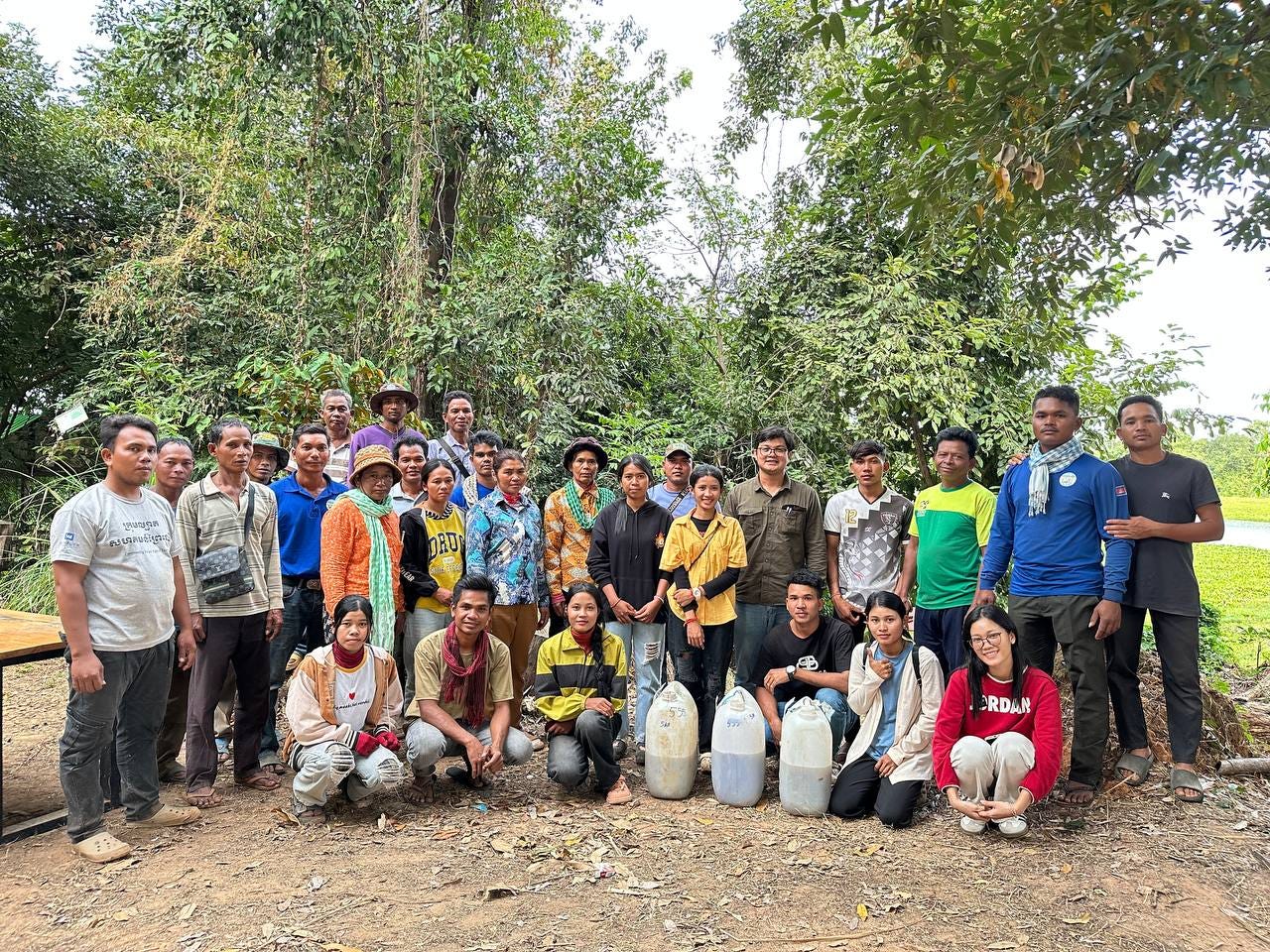USAID’s closing creates hardships for millions in Southeast Asia
The suspension of funds especially impacts non-government organizations

Hello to all new readers to the Mekong Dispatch. Our team of experienced editors curates and highlights on a monthly basis environmental articles about the Mekong region. On a weekly level, I offer my views on a timely topic related to the Mekong.
The Trump administration’s draconian move to shutter USAID operations presents a major setback on non-government organizations (NGOs) operating in Southeast Asia, particularly in vulnerable nations like Laos, Myanmar, and Cambodia. While Democrats are wringing their hands over these actions and promising legal challenges, let’s not forget the pain for citizens in the region. These specific countries rely heavily on international assistance to address pressing issues such as poverty, public health, education, and human rights. USAID has been a crucial partner in providing financial resources, technical expertise, and logistical support to NGOs working in these areas. Without this funding, many critical programs may be scaled back or completely shut down, leaving marginalized communities without essential services.
In Laos, where infrastructure and healthcare systems are still developing, USAID-funded programs have played a significant role in combating malnutrition, improving maternal and child health, and supporting economic development. The loss of funding will likely hinder progress in these areas, disproportionately affecting rural and indigenous populations.
Myanmar faces an even dire situation, given its ongoing political and humanitarian crisis. USAID has funded groups that advance democracy and human rights, helped displaced communities, and given humanitarian aid. With the military regime tightening its grip on power and restricting international aid, the withdrawal of USAID support may further isolate pro-democracy movements and leave conflict-affected populations without critical assistance. NGOs, already operating under severe constraints, will struggle to fill the gap left by USAID, potentially exacerbating instability in the region.
Overall, the gutting of USAID funding reduces the capacity of NGOs to provide life-saving aid and long-term development solutions. It also weakens international efforts to promote stability, governance, and economic growth in some of the most fragile countries in Southeast Asia. A recently published Wired article addresses how the collapse of USAID funding fuels human trafficking and slavery at scammer compounds in Southeast Asia. The ripple effects of this setback could be felt for years to come, potentially reversing progress made in poverty alleviation, health, and human rights.
Friends in Cambodia, who have been on the frontlines for years and who have relied on USAID for democratic governance support, human rights advocacy, and public health programs—especially in the fight against HIV/AIDS and child malnutrition—risk losing critical progress in these areas. For example, Kimhong Heng, president of the Cambodia Youth Network admits that the erosion of USAID funding has setback their campaigns for promoting youth engagement in democracy, human rights, and the dialogue engagement for inclusive policy development. In Cambodia, USAID has been instrumental in advancing democratic governance, human rights, and public health initiatives, particularly in the fight against HIV/AIDS and child malnutrition. A funding shortfall will lead to increased vulnerability among at-risk populations and weaken civil society organizations advocating for social and political reforms.
This is the time when young volunteers like those in Cambodia, are needed to empower local farmers and fishers to tackle climate change by providing training workshops on sustainable practices, resource management, and climate resilience, while also addressing issues like food security, economic stability, and environmental conservation.
The dismantling of the United States Agency for International Development (USAID) has significantly impacted the Stimson Center's initiatives in the Mekong region. The Stimson Center has been a key partner in the USAID Mekong Safeguards Program, which aims to promote sustainable infrastructure development by integrating environmental, social, and governance (ESG) standards. This collaboration has supported projects like the Mekong Infrastructure Tracker, providing comprehensive data on infrastructure developments in the region.
The closure of USAID operations in Southeast Asia will also significantly hinder demining efforts in Laos, Cambodia, and Vietnam, where unexploded ordnance (UXO) from past conflicts continues to maim and kill civilians. USAID has been a crucial source of funding, technical support, and coordination for clearance programs, providing resources for explosive ordnance disposal teams, victim assistance, and community education on UXO risks. Without this support, local governments and NGOs will struggle to maintain current demining progress, potentially leading to slower clearance rates, increased casualties, and prolonged economic and agricultural disruptions in affected communities.
Let’s be clear. The suspension of USAID funding not only weakens immediate humanitarian responses but also long-term stability, governance, and economic resilience in the region. For many who have dedicated themselves to mitigating the challenges along the Mekong River—one of the world’s great waterways—the implications of USAID’s withdrawal are clear: a worsening environmental and political landscape, reduced international engagement, and the loss of vital programs that have long provided hope and tangible improvements to countless vulnerable communities.
We can do better. Please join us as a new free subscriber at Mekong Dispatch. Thank you.






100% unalloyed bullshit! See what Scott Adams has to say about capacity building... <https://www.youtube.com/watch?v=PkNIHFFkHQY>
USAID funding halt is so painful to see. The overarching life-saving aid along with help in promoting economic progress in many vulnerable countries around the world are soon to disappear. My heart hurts.